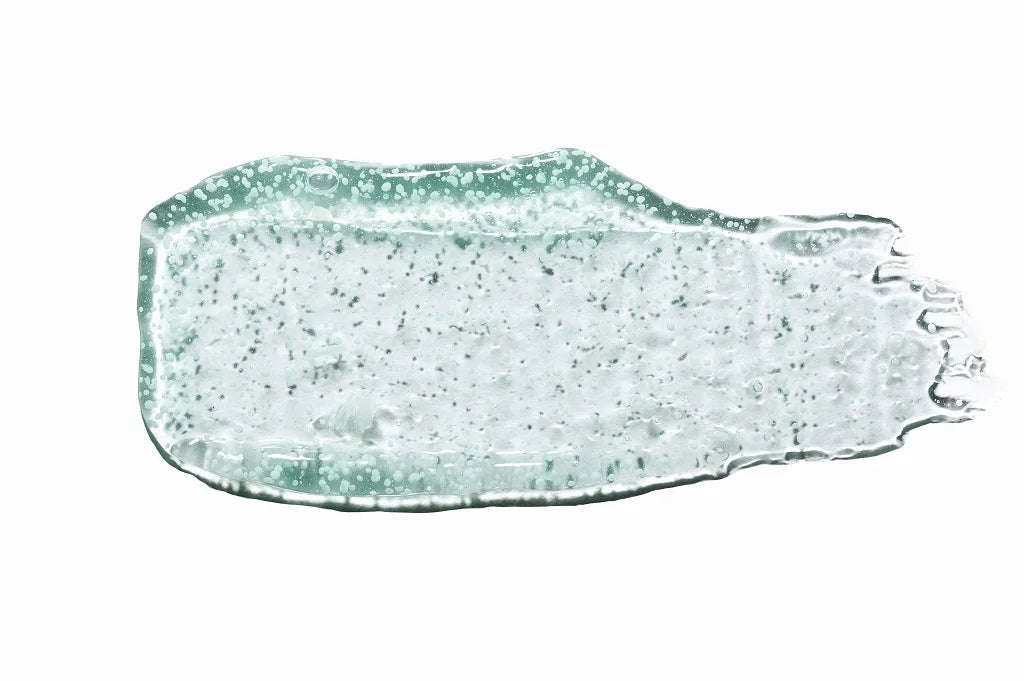
Beginners Guide To Chemical Exfoliation

Dr. Deepthi Prasad, MBBS.
Written by Our Editorial Team
Table of Contents
Listen to the blog
Nothing can replace the joy of reading, right? Read the blog here.
Exfoliation is a vital step in any skincare routine. Earlier physical exfoliants such as sugar, salt, and coffee powder were used as a scrub to slough off the dead skin cells and debris from the skin surface. But physical exfoliants can cause abrasion, causing micro-tears on the skin. Gradually chemical exfoliants started replacing physical exfoliants in the skincare game. Contrary to their name, chemical exfoliants are gentle on the skin; recently beauty industry has been witnessing a surge in the popularity of chemical exfoliants such as AHA, BHA and PHA because of their immense skincare benefits.
Also Read : Acids In detail: What Are AHAs ,BHAs, and PHAs In Skincare?
What Is Chemical Exfoliation?

Chemical exfoliation involves using acids such as salicylic and glycolic acid to break down the bonds between dead skin cells and dissolve the debris clogging pores, revealing brighter, clearer skin. Not only is chemical exfoliation highly effective, but it's suitable for all skin types, including sensitive and acne-prone skin. Let's take a deep dive into chemical exfoliation, find out how's it different from physical exfoliation, explore the different types of acids used in skincare products, and find out the ones suitable for your skin.
How Is It Different From Physical Exfoliation?

In physical exfoliation, the dead skin cells and debris are removed manually using scrubs containing micro granules, whereas in chemical exfoliation, acids or enzymes dissolve grime, debris and dead skin cells. Chemical exfoliants such as AHA, BHA and PHA are used in resurfacing serums to improve skin texture.
Both instantly give clean, clear, radiant skin, but physical exfoliants can be harsh on sensitive, oily, and acne-prone skin.
Also Read : Skincare Routine For Acne- prone Skin
Physical exfoliants can make your skin susceptible to inflammation, infection and dryness, whereas chemical exfoliants gently clean your skin without stripping it of its natural oils, accelerating cell turnover. Unlike physical exfoliants, which work on the skin's surface, chemical exfoliants can penetrate the deeper layers of the skin, unplugging the clogged pores, thus giving you a long-lasting result. Experts recommend chemical exfoliants to people suffering from acne-prone and sensitive skin as chemical exfoliants are gentle on the skin.
Three Main Types Of Chemical Exfoliants: AHA, BHA & PHA
Chemical exfoliants are acids or enzymes that dissolve the glue that binds the dead skin cell, debris and grime to the skin, buffing them away and giving you clear, radiant and younger-looking skin. Let's break chemical exfoliants into three categories to determine which suits your skin.
1. AHA Or Alpha Hydroxy Acids
AHA is a gentle exfoliant derived from natural resources such as grapes, almonds, milk, and citrus fruits. It works by effectively getting rid of dead skin cells and debris in a targeted manner to eliminate rough, dry skin with visible signs of sun damage, such as the appearance of wrinkles, fine lines and enlarged pores.
Glycolic, lactic, citric, and malic acids are common examples of AHAs used in skincare products. Glycolic acid is the most common AHA used because of its low molecular size; hence it can penetrate deeper into the layers of skin, unclogging the pores from deep within.
AHAs also exhibit moisturizing properties; hence, it is especially recommended for people with hyperpigmentation and mature and sun-damaged skin. It helps improve the skin's texture, eliminating early signs of aging.
2. BHA Or Beta Hydroxy Acids
BHA are oil-soluble acids that easily penetrate the pores, unclog the blocked pores by dissolving grime, and keratin plugs and fights bacterial infection, clearing the pores of the skin. BHAs such as salicylic acid, tropic acid, and trethocanic acid are beneficial for treating oily and acne-prone skin. Its anti-inflammatory effect is soothing to itchy, red and swollen skin. Salicylic acid is used in facial serums and cleaners formulated for oily and acne-prone skin as it controls excess oil production and helps with pimples, acne, blackheads and whiteheads, reducing the appearance of large open pores.
Try our Exfoliating Foaming Facial Cleanser, which has the benefits of AHA and BHA incorporated into a single skincare product. This exfoliating facial cleanser benefits all skin types because of its 2-in-1 action.
Buy ThriveCo Exfoliating Foaming Facial Cleanser
3. PHA Or Poly Hydroxyacid
Unlike AHA and BHA, PHA is not readily absorbed into the skin because of its large molecular size. It remains on the surface and is not a potent exfoliant; hence considered beneficial for people with sensitive skin. Being a mild exfoliator, it does not irritate your skin. It also acts as an excellent humectant, attracting water from the surroundings and restoring the skin's hydration level. It benefits people with dry skin conditions such as psoriasis and eczema. PHAs such as lactobionic acid, maltobionic acid, gluconolactone are well tolerated by all skin types and are considered effective in reducing pigmentation, fine lines, and wrinkles.
Also Read : Can Wrinkles Be Reversed? Let's Find Out.
Now that you know the different types of chemical exfoliants and which kind of exfoliant is beneficial for your skin type, you can choose your own skincare products. Just be mindful about exfoliating your skin, as over-exfoliation can lead to dry, itchy, inflamed skin. Including hydroxy acids in your skincare routine can be your secret weapon to achieving problem-free, glowing skin.
About Doctor :

Dr. Deepthi Prasad specializes in Dermatology, Cosmetology, and Aesthetic Dermatology and has been practicing for over 15 years. After completing MBBS from Dr. NTR University of Health Sciences Andhra Pradesh in 2009, she earned a MD in Dermatology, Venereology & Leprosy from Osmania Medical College in Hyderabad in 2014.
Disclaimer:All the content published on www.thriveco.in is solely for information purposes. It is not a substitute for professional medical advice, diagnosis, or treatment. Always consider seeking the advice of your physician or a qualified healthcare provider. The information, suggestion, or remedies mentioned on this site are provided without warranty of any kind, whether express or implied.





 Buy 1 Get 1 Free. Use Code: BOGO
Buy 1 Get 1 Free. Use Code: BOGO






